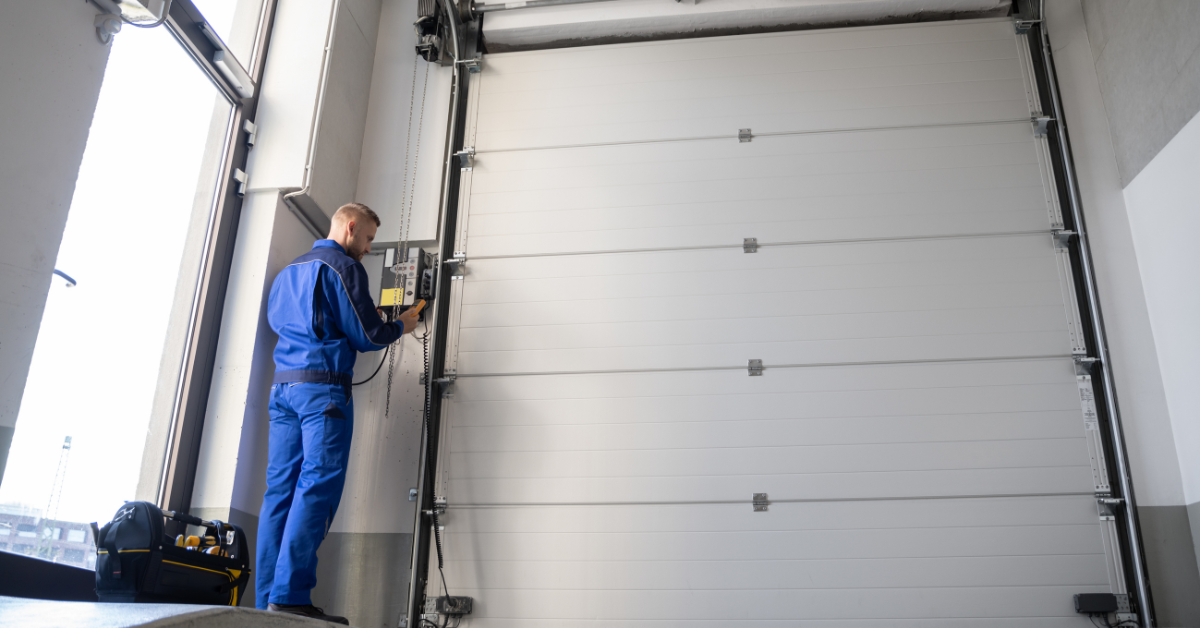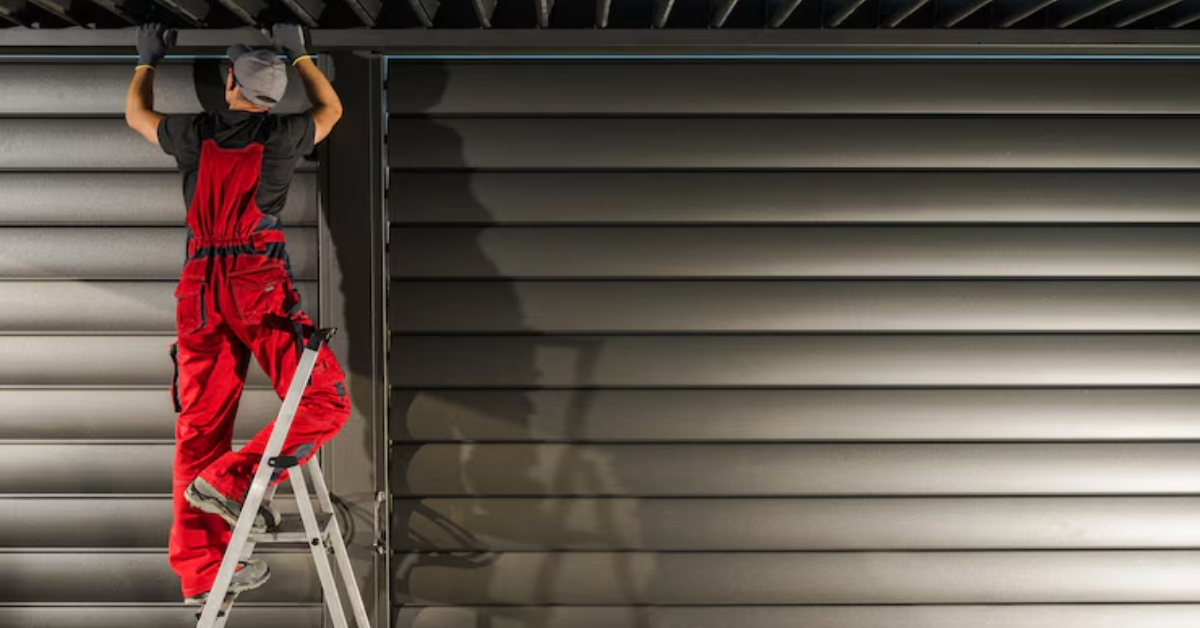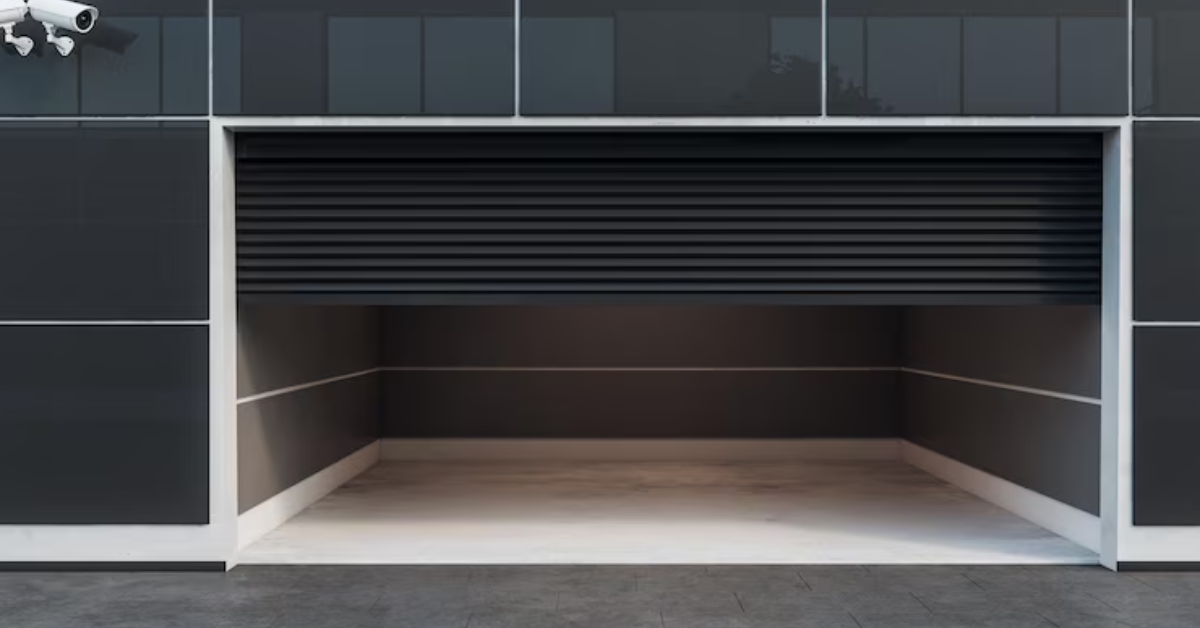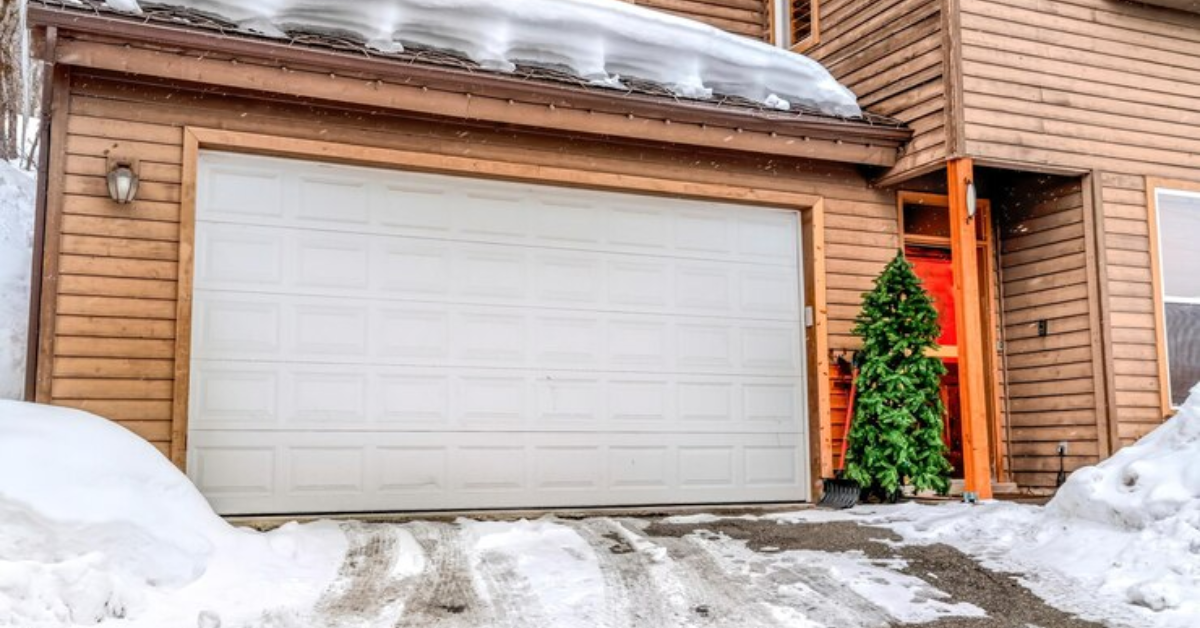Replacing vs. Repairing Your Garage Door: What's Best?
Your garage door is a silent sentinel, standing guard over your home day and night. It's the unnoticed protector that keeps your car safe from the elements, your belongings secure, and your daily life running smoothly. As you pull into your driveway after a long day, it's that dependable gatekeeper that swings open, welcoming you home. But what happens when this important component of your household starts showing signs of wear and tear? That's where our journey begins.
Here, we'll venture into the pivotal decision that many homeowners find themselves facing: the choice between repairing or replacing their garage door. It's a decision that carries significant weight because, let's face it, a functional garage door is not just a convenience; it's a necessity. It's the barrier that shields your possessions, protects your family, and adds to the curb appeal of your home.
Signs Your Garage Door Needs Attention
Your garage door, although often taken for granted, plays a vital role in your daily life. It's essential to recognize when it needs attention to ensure it continues to function smoothly and safely. Here are some common signs that indicate your garage door might be in need of care:
Strange Noises
Unusual sounds coming from your garage door can be a telltale sign that something is amiss. These sounds may include:
- If you hear grinding noises, it could be a sign that the door's moving parts, such as the rollers or tracks, need lubrication or replacement.
- A screeching sound might indicate that the door's springs or cables are under stress and require adjustment or replacement.
- Popping or banging noises can signal loose or damaged components within the door system, which should be addressed promptly.
Slow or Erratic Movement
Your garage door should operate smoothly and consistently. If you notice any of the following issues, it's time to pay attention:
Sluggish opening or closing: A slow-moving door could indicate problems with the opener motor, springs, or tracks.
Jerky or erratic movements: Inconsistent door movement may suggest a misaligned track, damaged rollers, or an issue with the door's balance.
Sagging or Imbalances
A balanced garage door is essential for safe and efficient operation, and signs of imbalance include sagging in one section of the door, which could be due to a broken spring or issues with the door's support system, as well as uneven opening or closing, where one side of the door rises or lowers faster than the other, indicating an imbalance that requires correction.
Weather-Related Damage
Weather can significantly impact your garage door, particularly when it's exposed to the elements. Keep an eye out for signs of weather-related damage, including rust or corrosion on metal components over time, which can lead to reduced functionality and potential safety risks. Also, be vigilant for cracked or warped panels, often resulting from extreme temperature fluctuations or exposure to moisture. Such issues can compromise both the aesthetics and performance of your garage door, emphasizing the importance of regular maintenance and timely repairs.
Safety Concerns
Safety should always remain paramount when it comes to your garage door. Keep a vigilant eye for signs of safety concerns, such as instances where the garage door fails to reverse upon encountering an obstacle or if the safety sensors are malfunctioning, both of which demand immediate attention. Further, ensure that your garage door maintains the capability for manual operation, especially in situations like power outages or emergencies; if it becomes stuck or difficult to move manually, this too constitutes a significant safety concern that requires prompt resolution.
Recognizing these common signs of garage door issues is the first step toward ensuring the continued functionality and safety of this essential part of your home. When you observe any of these signs, it's advisable to consult a professional garage door technician who can diagnose the problem and recommend the necessary repairs or maintenance to keep your garage door in optimal condition.
Advantages of Repairing Your Garage Door
When your garage door starts showing signs of wear and tear, you might wonder whether it's time to replace it entirely or if repairing it is the better choice. Repairing your existing garage door offers several compelling advantages that are worth considering:
Cost-Effectiveness: One of the most significant benefits of repairing your garage door is the cost-effectiveness it offers. Repairing is often more budget-friendly than replacing the entire door. You can address specific issues, such as fixing a malfunctioning opener, replacing damaged panels, or repairing springs, without the hefty expense of purchasing a new door and paying for installation. This cost savings can be particularly attractive, especially when your budget is a consideration.
Sustainability: Repairing your garage door is also a sustainable choice. By opting for repairs, you extend the lifespan of your existing door, reducing the need for manufacturing and disposing of a new one. This helps lessen the environmental impact associated with garage door replacement, such as resource extraction and energy consumption during manufacturing. Repairing aligns with eco-friendly practices by conserving resources and reducing waste.
Faster Turnaround Time: In many cases, repairing your garage door leads to a quicker turnaround time compared to replacement. Repairs often involve addressing specific issues, and experienced technicians can efficiently diagnose and fix the problem. This means you can have your garage door functioning smoothly again in a relatively short period, minimizing disruptions to your daily routine.
Maintenance of the Existing Design: Your garage door is an integral part of your home's exterior design. If you're happy with the current aesthetics and design of your door, repairing it allows you to maintain that look. You can replace damaged panels or components while keeping the overall style and appearance intact. This is particularly advantageous if your garage door complements the architectural style of your home or if you have a sentimental attachment to its design.
When Is Replacement the Better Option?
While repairing your garage door offers several advantages, there are specific situations where replacing the door becomes the more practical and advantageous choice. Here are the key scenarios when opting for a garage door replacement is the better option:
Extensive Damage or Wear
When your garage door has undergone extensive damage or exhibits severe wear and tear, replacement becomes a logical choice. If multiple panels are warped, rusted, or dented beyond repair, or if the door frame itself is compromised, a new door is necessary to ensure proper functioning and security. Attempting to repair an extensively damaged door may lead to ongoing issues and increased repair costs.
Outdated Technology or Aesthetics
Garage door technology has come a long way in recent years, offering enhanced features like smart connectivity, improved insulation, and quieter operation. If your existing garage door lacks these modern conveniences and you desire these upgrades, it may be more cost-effective and convenient to invest in a new door with the desired technology.
Frequent Repairs Becoming Costly
If your garage door has become a recurring source of repairs, and the cumulative costs of these repairs are becoming substantial, it may be financially prudent to opt for replacement. Frequent repairs can add up quickly, and in the long run, investing in a new, reliable garage door may save you money and hassle. A new door typically comes with a warranty, reducing the financial burden of unexpected repairs.
Safety Concerns Not Easily Addressed Through Repairs
Safety is paramount when it comes to your garage door. If your door poses safety concerns that cannot be easily addressed through repairs, replacement is the safer choice. For instance, if the door's safety features, such as sensors or auto-reverse mechanisms, are outdated or malfunctioning, a new door with up-to-date safety features should be considered to protect you, your family, and your property.
Cost Consideration
The decision to repair or replace your garage door is often influenced by cost considerations. Understanding the cost comparison between these two options is important for making an informed choice. Here's a breakdown of the factors that influence the costs of repairing and replacing a garage door:
Repair Costs:
Extent of Damage: The severity of the issue greatly impacts repair costs. Minor repairs, such as fixing a squeaky hinge or replacing a single panel, are generally more affordable than addressing extensive damage or multiple components.
Labor and Parts: The cost of labor and replacement parts, such as springs, cables, rollers, or sensors, contribute to the overall repair expenses.
Professional Fees: Hiring a qualified technician to diagnose the problem and perform the repairs adds to the cost.
Replacement Costs:
New Door: The cost of a new garage door varies significantly based on factors such as materials, design, insulation, and brand. Standard single-panel doors tend to be more budget-friendly than custom-designed or insulated doors.
Materials: Garage doors are available in various materials, including steel, wood, aluminum, and fiberglass. Each material comes with its own price point, with wood and custom designs generally being more expensive.
Installation: Professional installation is necessary for a new door, and the labor costs can vary based on the complexity of the installation and the door's weight and size.
Additional Features: If you opt for additional features like smart technology, insulation, windows, or decorative hardware, these will add to the overall replacement cost.
Cost Comparison
When deciding whether to repair or replace your garage door, consider both short-term and long-term factors. Repairing minor issues may offer immediate cost savings, but if your door requires frequent repairs, the cumulative expense could surpass that of a replacement in the long run. Further, weigh the energy efficiency benefits of newer garage doors, which often come equipped with improved insulation, potentially leading to long-term energy savings. Lastly, factor in the warranty that comes with a new garage door, covering repairs and parts for a specified period; this can significantly reduce potential future expenses, further influencing your decision.
Safety and Security
Your garage door is a critical component of your family's safety and the protection of your belongings, serving as more than just an entryway. It ensures your security by preventing unauthorized access to your home and safeguarding valuable items stored inside. Moreover, a well-maintained garage door reduces the risk of accidents through features like auto-reverse mechanisms and photoelectric sensors. Prioritize the safety and reliability of your garage by taking care of any necessary repairs or upgrades. Professional consultation is essential to assess your door's condition and make informed decisions, ensuring the safety and security of your family and possessions.
Consultation with a Professional
Involving a pro when making choices about garage doors is a good idea for a number of reasons. Professionals conduct thorough assessments, identifying hidden issues and forming the basis for informed decisions. They provide customized solutions tailored to your unique needs and budget, prioritize safety by addressing potential hazards and ensuring safety features are functional, offer cost-efficient guidance by assessing long-term economics, and deliver quality workmanship through their training and experience. Professionals guide you toward enhancing your garage door's functionality, safety, and security, aligning their expertise with your needs and priorities.
Conclusion
Repairing minor issues offers cost-effective and sustainable solutions, while replacing your garage door is advisable for extensive damage, outdated doors, or safety concerns. Your choice hinges on factors like damage extent, budget, eco-consciousness, and desire for modern features. Seek professional guidance to make informed decisions, enhancing your garage door's functionality, safety, and security. Remember, your garage door is more than just an entryway; it's a guardian of your home, ensuring security, budget preservation, and minimal environmental impact.




